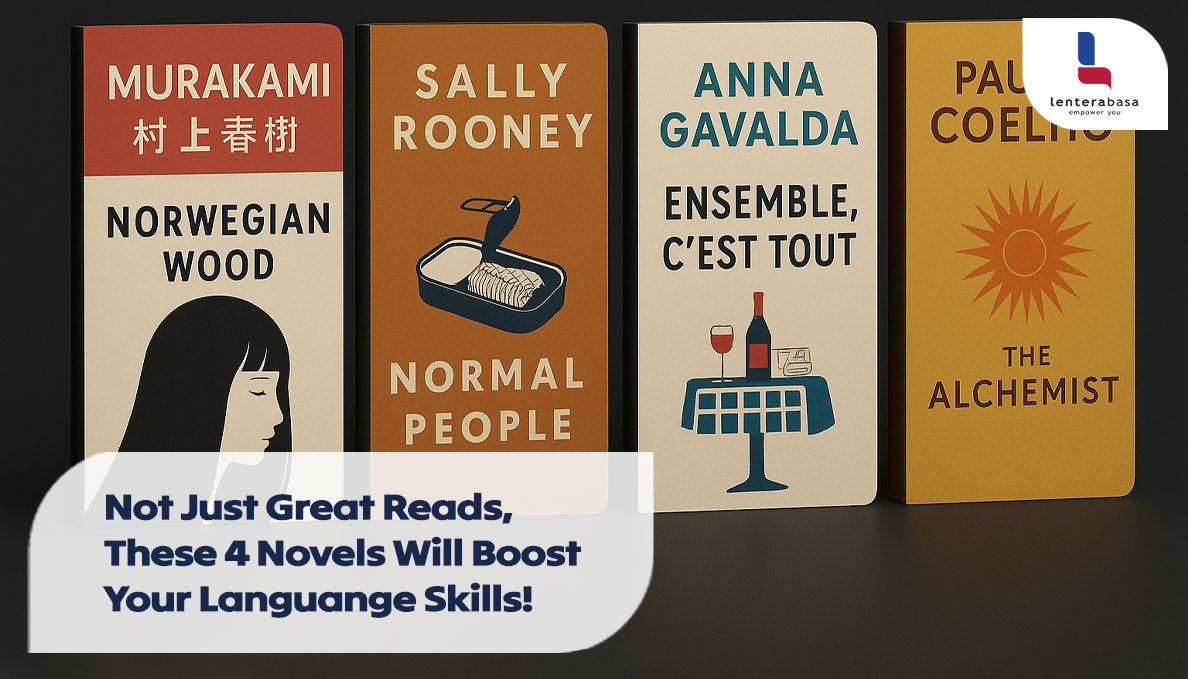Reading a novel is not just a form of entertainment; it is an act of deep immersion. It allows your brain to absorb vocabulary and sentence structures passively, making the learning process feel organic and enjoyable. By choosing the right books, you can target specific linguistic challenges that textbooks often fail to address.
Forget the dry, stilted dialogues found in language primers. We’ve selected four globally recognized novels that serve as exceptional language tools, each designed to supercharge a different aspect of your foreign language proficiency, taking you from functional learner to native-like conversationalist.
1. Mastering Structure and Context: Norwegian Wood by Haruki Murakami (Bilingual Edition)
For learners tackling complex languages like Japanese, bridging the gap between memorizing vocabulary and understanding sentence structure (Bunpō) is the biggest hurdle. This is where the bilingual edition of Haruki Murakami’s seminal work, Norwegian Wood, proves indispensable.
Why It Works for Language Acquisition:
- Dual-Language Comparison: The bilingual format, which presents the original Japanese text alongside a professional English translation, allows for immediate cross-referencing. You can track how a long, convoluted Japanese sentence (using kanji, hiragana, and katakana) is logically rearranged and understood in English. This rapid visual comparison drastically improves your ability to decode complex structures without getting lost.
- Vocabulary Retention: Murakami’s narrative is rich in evocative, contemporary vocabulary. Seeing a new word used repeatedly within the emotional context of the story—and immediately knowing its meaning from the opposing page—aids in long-term memory consolidation far better than a simple dictionary entry. This method turns your reading time into a highly efficient, focused study session.
2. Unlocking Authentic Dialogue: Normal People by Sally Rooney
When learning English, many students struggle to transition from formal, grammatically perfect textbook speech to the fast-paced, fluid, and often emotionally understated dialogue of native speakers. Sally Rooney’s modern masterpiece, Normal People, is the perfect antidote.
Why It Works for Language Acquisition:
- Dialogue Dominance: Rooney’s writing is heavily dialogue-driven and famously minimal, often skipping traditional dialogue tags like “he said.” This forces the reader to pay intense attention to context, tone, and the subtle emotional cues within the conversation itself.
- Casual Proficiency: The characters speak in contemporary, realistic English—full of slang, contractions, and short, impactful phrases. This exposure is crucial for developing strong listening and speaking skills that sound natural, moving you beyond the rigid formality of academic English and equipping you for real-world interactions.
3. Absorbing the Everyday Flow: Ensemble, c’est tout (Hunting and Gathering) by Anna Gavalda
For French learners, the goal is often to sound native—to master the natural flow, rhythm, and everyday idioms that make French dialogue so charming. Anna Gavalda’s Ensemble, c’est tout provides exactly this immersion.
Why It Works for Language Acquisition:
- Accessible Authenticity: The novel tells a story of four disparate characters living together in Paris, focusing heavily on their daily lives, humor, and tender interactions. Gavalda’s language is accessible to intermediate learners while remaining undeniably authentic.
- Idiomatic Goldmine: The book is a treasure trove of idiomatic phrases (expressions idiomatiques) and common slang that French people actually use, but which are rarely taught until advanced levels. Reading Gavalda helps bridge the gap between classroom French and the language spoken in a Parisian café. You learn how to express emotions and casual observations with true French flair.
4. Building Narrative Foundations: El Alquimista (The Alchemist) by Paulo Coelho
For those starting out in Spanish (or even Portuguese, the original language), finding a novel that is manageable yet engaging can be difficult. Paulo Coelho’s global phenomenon, El Alquimista, provides the ideal narrative framework.
Why It Works for Language Acquisition:
- Simple, Universal Narrative: The book is structured as a philosophical fable. Its plot is easy to follow and universally relatable, meaning a beginner can focus on language acquisition without getting confused by complex cultural or historical references.
- Repetitive Structure & Core Vocabulary: The straightforward, often repetitive sentence structures and limited core vocabulary are excellent for beginners. The narrative heavily utilizes the Simple Past Tense (Pretérito Indefinido) and Simple Future Tense, providing constant, manageable exposure to high-frequency verb conjugations crucial for building a strong foundation and confidence in reading longer Spanish texts.
Switching your reading material from dedicated language textbooks to engaging novels is one of the most powerful language hacks you can adopt.
By diving into these rich stories, you are not just reading; you are passively programming your brain with the patterns and context of a new language. Your vocabulary will grow, your comprehension will sharpen, and your confidence to speak will soar.
Ready to combine your passion for reading with your pursuit of fluency?
Check our website at Lenterabasa.com for more interesting articles!

